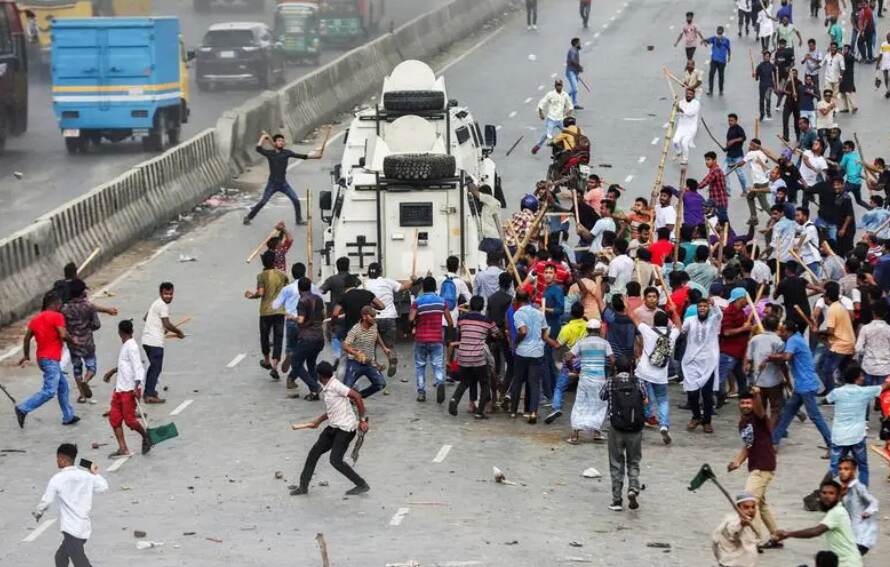Bangladesh Police Clash with Opposition Supporters Demanding Prime Minister's Resignation over Economic Crisis and Rights Abuses
Police clash with opposition supporters in Bangladesh as they demand Prime Minister Hasina's resignation. The protests highlight economic crisis and allegations of vote rigging, raising concerns over human rights abuses and lack of political tolerance. International community calls for fair elections.
Police clashed with opposition supporters in Bangladesh as they demanded the resignation of Prime Minister Sheikh Hasina. The opposition Bangladesh Nationalist Party (BNP) blocked major roads in the capital, Dhaka, leading to clashes with law enforcement.
The BNP claims that dozens of their supporters were injured and over 120 members were arrested. The protests come as Bangladesh faces an economic crisis, with rising inflation and a cost of living crisis. The BNP has been organizing large protest rallies in recent months to highlight these issues.
The opposition is demanding that Prime Minister Hasina step down and that the next election, scheduled for January 2024, be held under a neutral caretaker government. The BNP Secretary-General, Mirza Fakhrul Islam Alamgir, stated during a rally that there is no possibility of having a fair election under the current government.
The BNP accuses Hasina's Awami League party of vote rigging in previous elections and claims that important institutions in the country have been destroyed, and people's rights have been taken away. Critics of Hasina's government accuse her of authoritarianism, human rights abuses, suppressing free speech, and dissent.
Security forces have been accused of detaining tens of thousands of opposition activists, engaging in extrajudicial encounters, and disappearing opposition leaders and supporters. The Rapid Action Battalion (RAB) security force and seven of its senior officers were sanctioned by the US in 2021 due to alleged rights abuses.
So far, the government has rejected the opposition's demands, arguing that a caretaker government is unconstitutional. In 2011, the Supreme Court of Bangladesh struck down the constitutional provision that allowed an incumbent government to transfer power to an unelected caretaker administration.
The international community has expressed concern over the escalating tensions in Bangladesh. Amnesty International's regional campaigner for South Asia, Yasasmin Kaviratne, has called on the government to allow protests and dissent, stating that the government's actions signal a lack of tolerance for different political views.
The United States has called for free and participatory elections, as the last two national elections were marred by allegations of vote rigging. US congresspeople have also urged a fair election in Bangladesh under the mediation of the United Nations and neutral parties. The Bangladeshi government has accused the US and its Western allies of interfering in its internal affairs.




